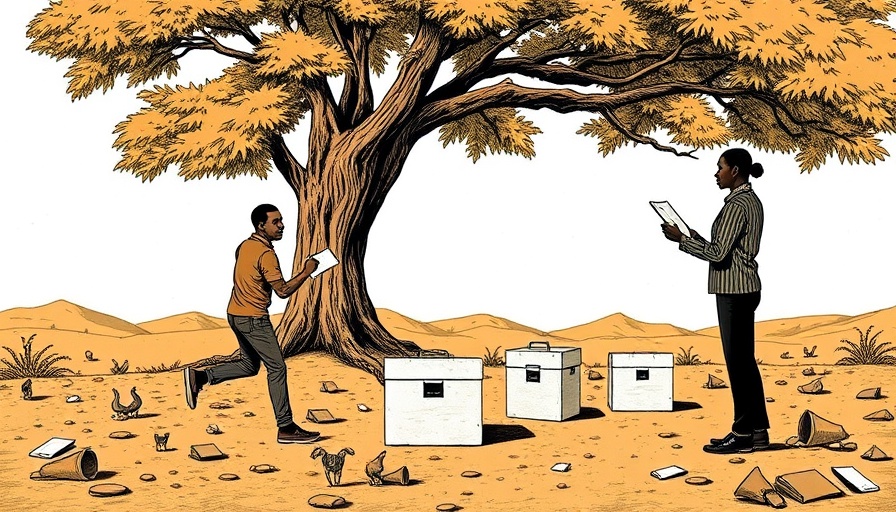
Understanding the Cost of Ineffective Elections in Africa
The unfortunate irony of Africa's electoral processes is that while they are touted as pillars of democracy, they often result in turmoil that undermines economies and devastates lives. In several instances across the continent, elections have transcended their original intention of fostering representative governance, morphing instead into catalysts for violence, corruption, and social fragmentation.
Political Instability: A Hindrance to Economic Growth
Political instability during and after elections has been a recurrent theme in many African nations. The persistence of conflict post-elections leads not only to immediate loss of lives but also enduring ramifications for businesses and foreign investments. For instance, when political tensions escalate, sectors such as tourism and trade experience significant declines, crippling local economies and stifling growth potential. The 2017 Kenyan elections exemplify this, as the ensuing unrest not only hurt businesses but also deterred potential investors keen on tapping into the African market.
Failed Promises of Democracy: A Cycle of Disillusionment
Moreover, citizens often find themselves caught in a cycle of disillusionment. The promises of democracy and improved living standards associated with elections frequently end in disarray. Each election, characterized by promises of reform, often results merely in a change of power rather than substantive change. Such patterns further embolden entrenched political elites while alienating the electorate from governance processes, resulting in civic apathy and low voter turnout as citizens lose faith in democratic institutions.
The Need for Genuine Reform Beyond Elections
To rectify this disarray, it is essential for African nations to reassess the efficacy and execution of their electoral processes. Genuine political reform necessitates more than just voting; it calls for enhancing electoral integrity, ensuring accountability among leaders, and promoting active civic engagement. This demands investment not just in election monitoring but in fostering a political culture that values transparency and inclusivity.
Call to Action: Investing in True Democracies
As influential stakeholders in Africa's future, business leaders, policymakers, and researchers must advocate for elections that are not merely a formality but a genuine mechanism for social change. Initiatives aimed at cultivating a democratic environment must be prioritized over mere electoral contests. Only then can Africa envision elections that enhance economic development rather than ruin lives and livelihoods.
 Add Row
Add Row  Add
Add 


Write A Comment